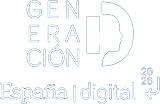22/01/2019
Only 2% of employed women work in the technology and digital sector
- Of the total number of higher education graduates, 15% of men are in technological studies. Women account for less than 3%.
- Women’s participation figures in the sector are declining. Only 14.6% of graduates in technological studies are women.
- The average salary in the technology sector is much higher than in other sectors: 22.1% among women.
- In positions with similar characteristics, women earn 3.1% more in the technology sector than in other sectors.
- The -adjusted- wage gap in the ICT sector is 8.9%, compared to 14.2% in the rest of the sectors.
Madrid, January 22, 2019.- The technology and digital sector suffers from a widespread talent recruitment problem,both in Europe and Spain, and in particular, women’s participation figures in the sector are falling. Only 15.6% of workers with a technical profile in the digital sector are women. This is one of the conclusions of the report Women in the digital economy in Spain 2018, presented today by the association DigitalES, employers’ association of the technology sector, and the consulting firm Quanticae, chosen by the European Commission to carry out its report Women in the digital age.
The presentation of the report was attended by the Vice President and Minister of Equality, Carmen Calvo, together with the President of DigitalES, Eduardo Serra.
Eduardo Serra thanked the Vice President for her presence and highlighted “the end of an era” that digitalization represents and the “public-private” collaboration model that is now “essential” for the economic progress of a country. According to Serra, the need for this report is evident in the fact that “although we have already achieved parity in universities, the technology and digital sector is far behind in female representation”.
For her part, Vice President Carmen Calvo expressed her gratitude to DigitalES for “taking care and concern” in advancing equality in the digital sector. According to the vice-president “we have to be attentive to resolve the injustices that we inherited from traditional roles; the gender perspective is also about justice, not about changing privileges”, and she defended equality legislation as a necessary legislation to “restore rights and opportunities”. The Minister of Equality revealed that the Government is working to solve “the deficit in the educational orientation of girls”, alluding to the importance of education from an early age to shape a more egalitarian society.
The presentation of the study was followed by a round table discussion on “Women in the digital sphere” by executives from large companies in the sector: Isabel Ordoyo from ALTRAN, María Luz García de Castro from ERICSSON, Victoria Fraguas from EY, María Luisa Melo from HUAWEI and Rocio Miranda de Larra from ORANGE.
Moderated by the journalist Sonsoles Moralejo, the round table discussed the need for female referents in decision-making roles in the digital and technological sphere. The need to attract female talent, and the sharing of work and family reconciliation took up a large part of the debate.
WOMEN IN THE DIGITAL ECONOMY 2018
The report Women in the Digital Economy analyzes the presence and participation of women in technological and digital studies and occupations in Spain. According to the report, fewer and fewer young people are opting for technology careers, and the competencies and skills of professionals are not always the best match for industry needs. Moreover, the trend indicates a worrying decline in women’s participation in one of the most transversal and important economic sectors for the economy, whose perverse effects on employment or inequality could be aggravated if half of the population as a whole and more than half of the university population are not part of it.
Only 3% of women graduates in higher education are in studies considered technological. Of the total number of graduates in technological studies, only 14.6% are women.
This also translates into a lower female presence in jobs in the sector. A sector whose salaries are more than 20% higher than those of other sectors, and where women with similar characteristics in similar positions earn 3.1% more than in other sectors.
The report also reveals the wage gap figure, which is significantly lower in the technology sector than in the rest of the sectors: 8.9% compared to 14.2% in the rest of the sectors.
This gap is adjusted for variables such as age, type of contract and working day, type of company, company size, region, seniority and level of education.
(More info in the attached note and in the report)










